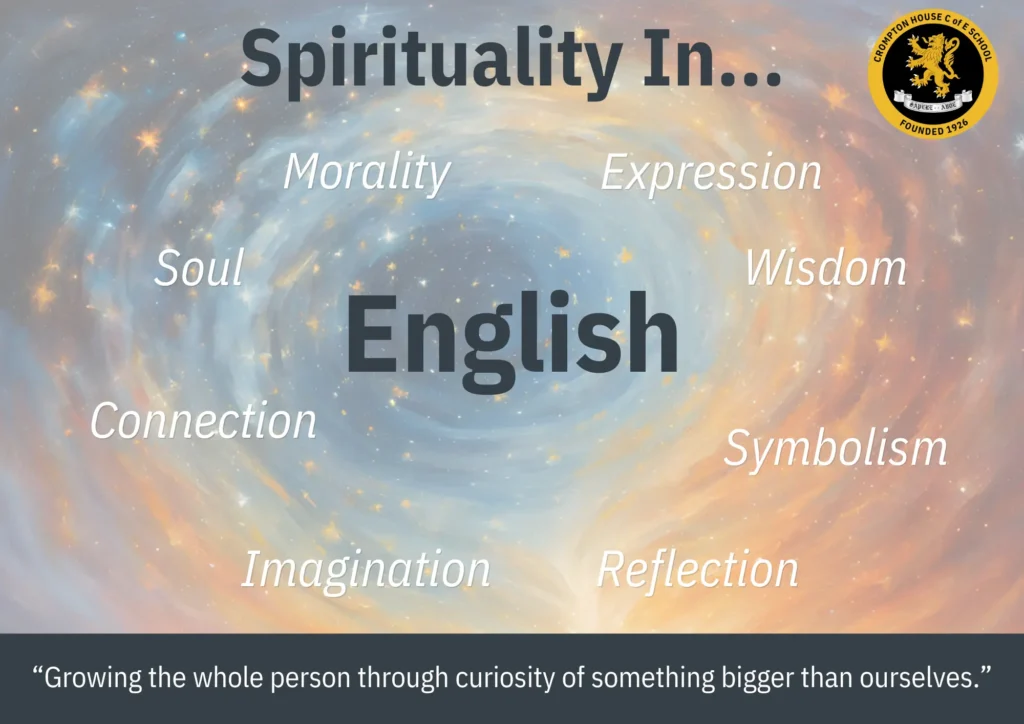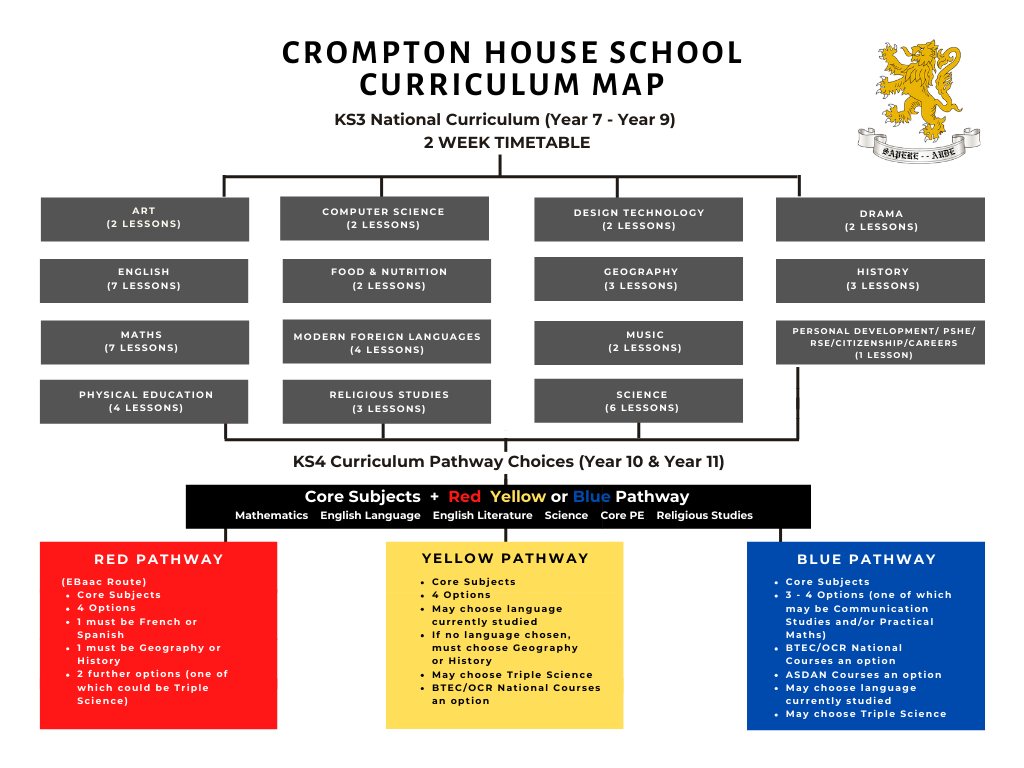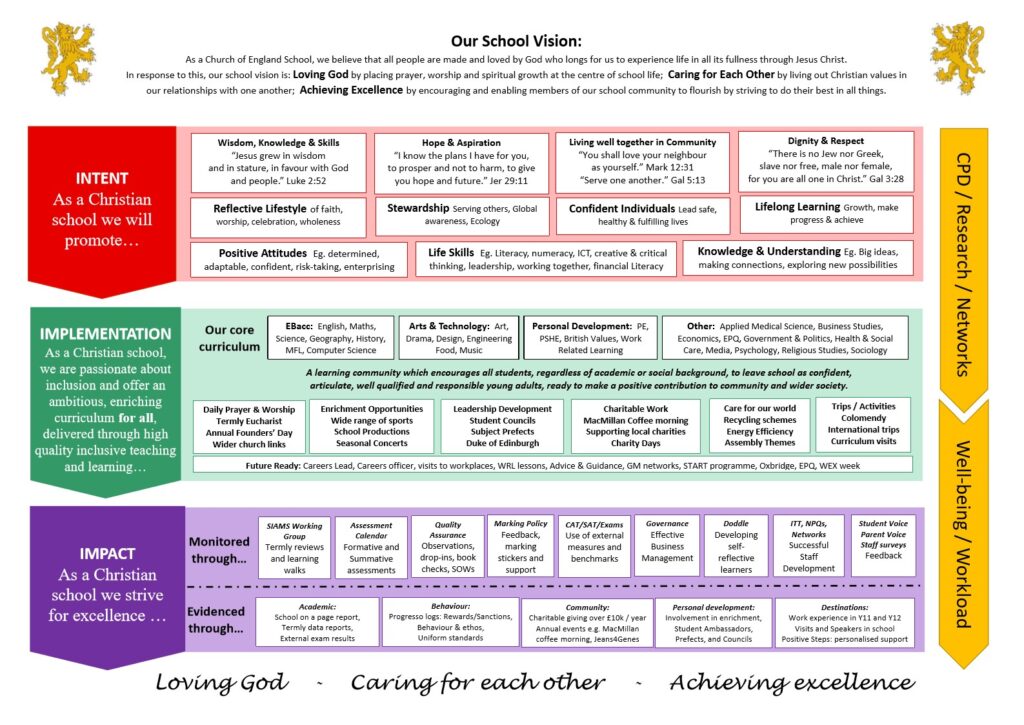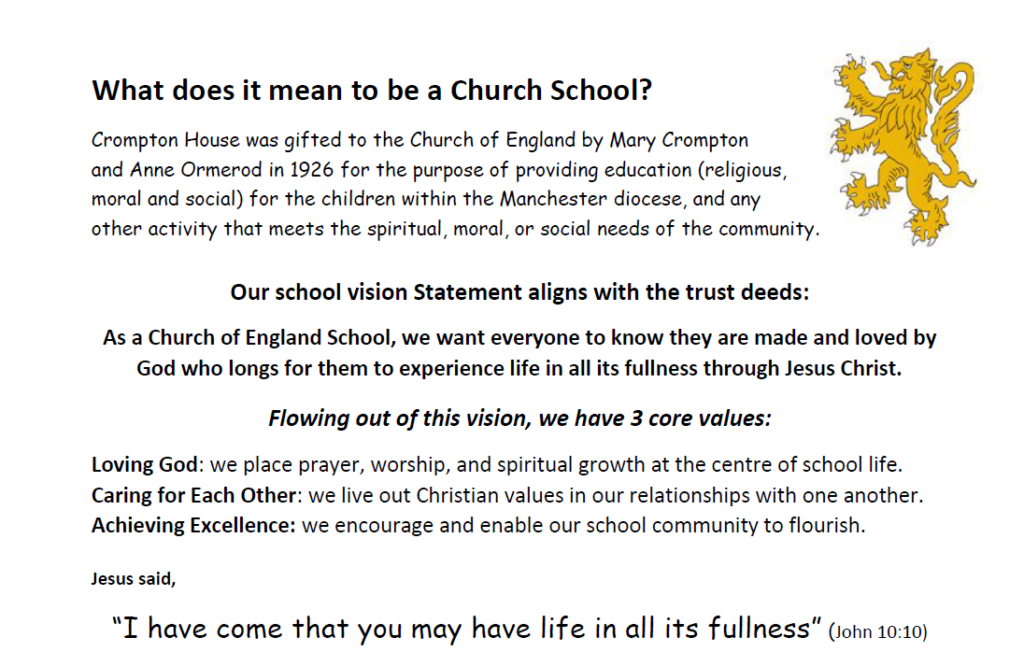English
The English and Media Faculty at Crompton House intends to help all students progress in the key skills of reading, writing and oracy. We also give all students access to a wide range of high-quality fiction and non-fiction texts in order to develop their language and communication skills. We develop students’ cultural capital and empathy to allow them to be ‘future ready’, to find fulfilling employment and contribute positively to society. We aim to foster a love of reading for all students, so that they read widely and often.
Through carefully sequenced long and medium term schemes of work, we teach all students key skills and knowledge. These schemes of work also outline how learners’ understanding will be checked, how misconceptions will be addressed and how teaching sequences can be adapted as and when necessary. Retrieval practice is outlined in the long-term scheme and shows how content is revisited to ensure it is remembered. All English and Media lessons are taught by fully-qualified subject specialists.
Impact is measured through a range of formative and summative assessments, as well as regular marking and feedback. Support will be put in to place when teachers judge that students are not fulfilling their potential. Our aim is to ensure all students perform to the best of their ability and are ready for the next stage of their education by the end of the relevant key stage.






